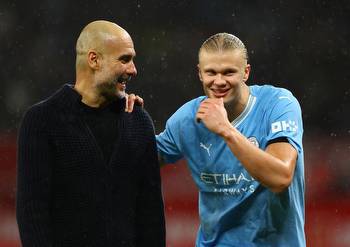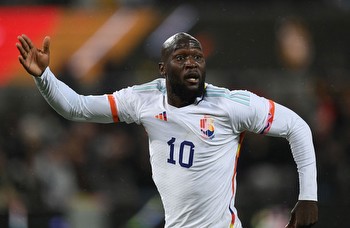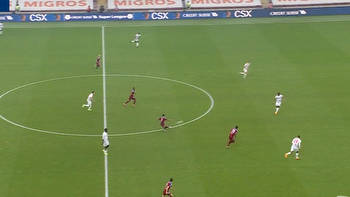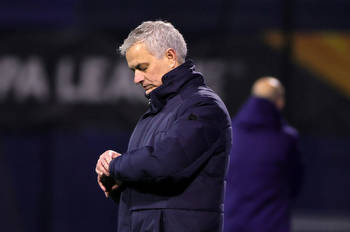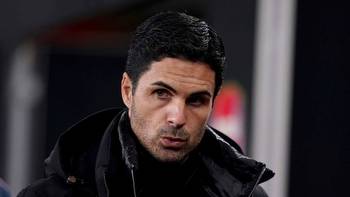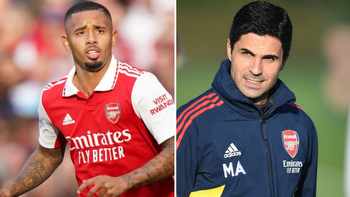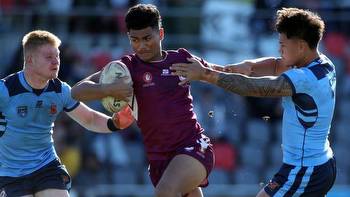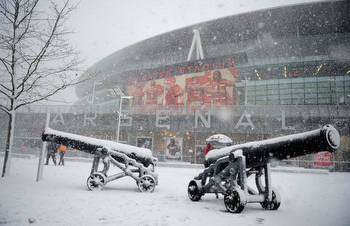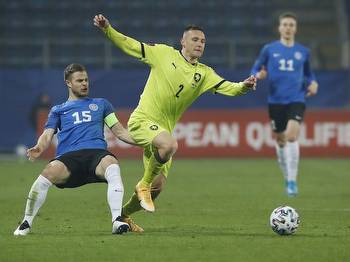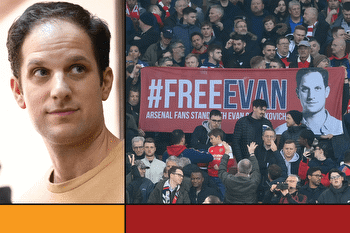Wenger inducted into Premier League Hall of Fame
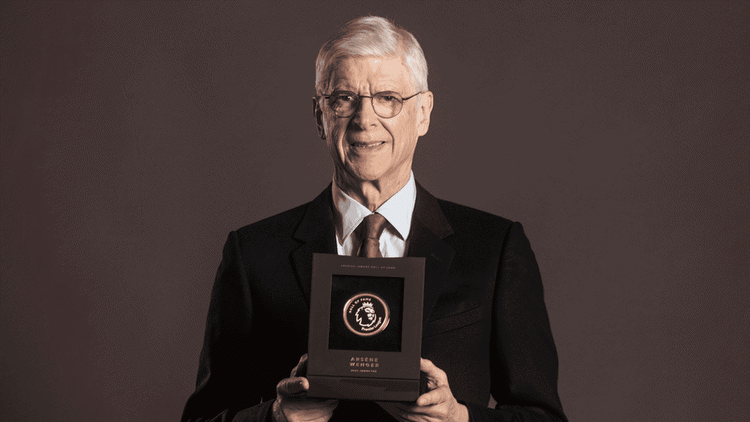
Our legendary former manager Arsene Wenger has been inducted into the Premier League Hall of Fame.
The Frenchman has been included alongside his long-time rival Sir Alex Ferguson, as the pair become the first managers to be bestowed the highest individual honour awarded by the League.
Arsene’s 22 seasons in charge of us is a Premier League record. He won the title three times and made history in 2003/04 as The Invincibles remained unbeaten throughout the entire campaign.
Arriving as one of the first foreign managers in English football in 1996, his impact was instantaneous and remarkable. He raised standards through a revolutionary philosophy and commitment to playing attractive, attacking football, and lifted his first championship in 1997/98 at the end of his first full season with us.
Arsene oversaw an astute transfer strategy, including scouting abroad for talent, which notably brought about the signings of fellow Hall of Fame members Thierry Henry and Patrick Vieira amongst many other stars.
He managed a record 828 Premier League matches, including 476 wins and 199 draws, and was voted Manager of the Season in 1998, 2002 and 2004.
“I am very grateful to have been selected for the Premier League Hall of Fame,” he said. “We always wanted to give something special to the supporters and when you have players capable of remarkable things, the most important thing for me is the obligation of perfection.
“I’d like to be known as someone who loved Arsenal, who respected the values of the club and left it in a position where it can grow and become even bigger.”
Hear more from Arsene about his time in charge of us, and also get Mikel Arteta’s thoughts on Arsene’s induction
Wenger facts and stats
- Arsene managed 828 Premier League matches, the most of any manager in Premier League history.
- He is the only manager to go through an entire Premier League season without losing, doing so in 2003/04, as we won 26 and drew 12 of our 38 games on our way to winning the title.
- The Frenchman holds the record for the longest unbeaten run by a manager in Premier League history, going 49 matches unbeaten between May 2003 and October 2004.
- In 2001/02, Arsene’s team scored in every Premier League match on their way to winning the title. We remain the only team in Premier League history to score in every match in a season.
- Wenger managed in 22 consecutive Premier League seasons between 1996/97 and 2017/18 – it’s the most different seasons anybody has managed in Premier League history.
- He won 106 London derbies in the Premier League, 64 more than any other manager.
Wenger's Premier League record
Copyright 2023 The Arsenal Football Club plc. Permission to use quotations from this article is granted subject to appropriate credit being given to www.arsenal.com as the source.
Aspiring to become a top-level professional footballer when you are nine or ten years old is not particularly unusual. But the circumstances surrounding Karl Hein at that age meant the odds of that dream becoming a reality were heavily stacked against him.
Coming from a family with no history of football, attending a school where barely any of his friends played the sport and growing up in a country that were ranked outside FIFA’s top 100 teams, Karl’s path to becoming a professional goalkeeper and then joining one of the biggest clubs in the world could hardly have been expected.
A good job then, that Karl was something of a child prodigy.
Indeed he was so gifted at a young age that his first club, FC Tiigrid, on the outskirts of Tallinn, hired a goalkeeper coach purely to help fulfil his potential. He then made his senior debut for his next club, Nomme United, at the age of just 15, before becoming a full international only three years later.
His rapid rise in the sport thus far is down mainly, he says, to the unwavering support of his parents, and his own ingrained self-motivation and determination.
“My family are my main inspiration, but also I’m inspired by football itself,” the young goalkeeper begins.
“None of my family had ever played football before me, not even grandparents, I’m the first one. It started for me when my older brother, who’s six years older, started to play football because his schoolmates played it. So he got into it and then I started to play with him from a very young age. Then when I was seven, at primary school, I started to go to training as well. I was invited to a local football club and that’s where it started.”
Karl’s older brother Erik is also one of the reasons he went into goalkeeping. Not because he wanted to be like his older sibling, but because as the junior Hein, he was more often than not on the receiving ends of practise shots in the garden.
“Ha ha yes, to be fair he is actually the complete opposite of me!” Karl smiles. “He’s like 170cm tall, very short compared to me. I was always tall for my age, and he would be blasting the ball at me in goal from a young age – that’s how it started for me.
“Goalkeeper was always my main position, but when we were still young kids on a small pitch, I used to sometimes get bored and go outfield. And to be fair, I used to score a lot of goals. I just loved to have fun and shoot – I always wanted to be involved and to decide the games.
“But football was not the main sport in Estonia when I was born,” he adds. “In my school for some reason there weren’t many kids playing football. I was one of the only ones. That was annoying because I had nobody to play with! They were playing volleyball, but I dragged my best mate into football training and then he started to play with me.
"Football started to become more popular in Estonia from about 2011, when we reached the playoffs for the Euros, that was a big thing for us because we were a very young country. Now you can see how it’s increasing.”
Karl soon took his participation in the sport to the next level, joining his local club FC Tiigrid (Tigers) and his parents sacrificed plenty, showing him all the support he needed to get started in the sport.
“Yes, very much, but there was never pressure from them,” he says. “It was completely up to me, I wanted to play football, I love football, and they were always there, supporting. Especially my mum who used to take me every weekend, when we had little tournaments, and every evening when we used to go to training. I just can’t thank her enough for that.
“I’ve especially started to realise since I came here to England how much they actually did for me. I know not all parents would sacrifice their time to make sure their kid gets to training and all that. So literally since I started to play football until I came to England, she was always there for me.
“I had good coaches too, but I was always crazy about football, so I didn’t need encouraging. In fact, I remember in my first club when we were still very young, about eight or nine, they actually organised a proper goalkeeper coach to do training with me, because they didn’t have one before.
“Madis Rajando was his name, and I remember him very well. He was the first proper, let’s say professional coach, and for me at such a young age to have a goalkeeper coach, that was really special. It really motivated me.
“I still speak to him to this day. You have to remember the ones who have been really supportive.”
The full-time coaching only intensified Karl’s laser-like focus on becoming a professional footballer, which was entrenched from a young age. It was soon time to move on and join Estonian league side FC Nomme, a club with a reputation for enhancing young talent.
“I always wanted to play, because I was always crazy for football,” he says, “even at my small club FC Tigers. When we were still playing on small pitches, already at that time my vision to was to be a professional. I just loved the game so much and I wanted nothing more than to be a top-level footballer myself.
“But then obviously, moving to Nomme was a big step towards that. It was a massive step, going to play on a full-size pitch with older players. Expectations started to rise. I went into competition, like a youth league format that’s played in Estonia. Things got really competitive and it was a step up definitely in my career.
“But at that time I was already certain what I wanted to do.”
"I just loved the game so much and I wanted nothing more than to be a top-level footballer myself"
It was soon apparent that Karl’s talent matched his ambition. To say he developed quickly is an understatement.
“I made the transition to men’s football at 15,” he reveals. “At about 14 or 15 I started to train with the first team at Nomme United.”
So how did he deal with moving into that environment? Was it intimidating to be into a first-team dressing room?
“Well it was different!” he grins. “It was hard, but I think I always backed my abilities. I knew I was good enough to make the next step. I think I was 16, or maybe 15 actually, when I made my debut. It was time to do that because at that stage I was already playing for the under-17 national team, and I realised I could make the next step.”
Not long after that Nomme United debut, at the start of 2018, he was on his way to the Arsenal Academy. He joined that summer, and signed pro forms the following year at the age of 17.
The club’s only previous Estonian player – fellow goalkeeper Mart Poom – played a big part in the move, as Karl explains.
“He was my coach at Nomme United, and still coaches me at national level and at Nomme United. I’ve known him a long time,” he says.
“One of the reasons I moved to Nomme was to get a connection with him. We had the thought that he would help me at that time, to build up my career, and that’s exactly what he did. He’s a big inspiration for me, since I was 13, and started training with him. Since then he’s been my mentor.
“He was very much involved when I moved to Arsenal. I asked him a lot about the club, and for his opinion, and he had nothing but good words about Arsenal.
“He said it’s very much like a family club, a big, legendary club and when I came on trial here I felt really good here.
“In fact I came here on trial with him, I’ve got a picture of us together. He helped organise the trial and I was very, very thankful to him.
“He was an incredible player and goalkeeper. He’s still so dedicated, his work ethic is incredible, incredible. You wouldn’t believe it – seven per cent body fat!”
"as a young Estonian boy, to go into a top club in Europe... It was surreal"
Earlier this season Karl followed in Mart’s footsteps, becoming our second Estonian when he made his first team debut in our Carabao Cup game against Brighton at the Emirates.
He had already emulated his mentor by representing his country at senior level. Poom remains his country’s most capped goalkeeper of all time, with 120, and Karl is already up to 20 caps. His debut came back in 2020.
“That’s a very fresh memory for me,” he grins. “I was 18, during the 2020/21 season, after the first Coronavirus lockdown break.
“It was the September national team break, and before that we had won the FA Cup. So for six months I hadn’t played a minute of football, no actual gametime, and then I was called into the first-team.
“The first-choice keeper got injured and I got told I would play on my way to the airport. I realised it was my chance. At 18 years old, to sing the anthem... it was an empty stadium, but still you hear the anthem, you sing it and you realise that’s the dream – I’m an international.”
It’s just another landmark that Karl, who doesn’t turn 21 until next month, has taken in his stride. Now in his fifth season at the club, and officially part of the first-team squad, the keeper is very much at home in his surroundings. He even has a detectable London twang to his accent. In a sense he’s grown up at the club, but the pride he still has in being here is evident.
“It was so exciting for my whole family when I joined,” he beams. “Very exciting, as a young Estonian boy, to go into a top club in Europe. It was surreal. My parents always, always backed me and we were all so happy to go to such a big club from Estonia. Just surreal. I had never been to England before so it was a massive change of culture, city, everything.
“I can’t lie, it was difficult at first. It was difficult to leave home. That moment when you realise, ‘Oh my God, I’m 16 and I’m not going to be at home anymore’.
“But when I had a bit of a homesickness coming, I always said to myself: ‘Come on Karl, you’re at Arsenal now, it doesn’t get better than that’. It was what I wanted, what I dreamed of, so it never affected me. I probably had homesickness for a few months when I was first here, but then that realisation that this is my dream to be here, so just crack on. That always motivated me even more,
“My parents come over every now and then but I’m completely settled here now. I have my own life here, my own apartment and all that, so I’m very settled now, very happy. I feel very natural to be here in London now, I know the system, how things work in the club and the city, I’m very at home.
“Especially I’m enjoying the football and everything right now.”
Copyright 2023 The Arsenal Football Club plc. Permission to use quotations from this article is granted subject to appropriate credit being given to www.arsenal.com as the source.

